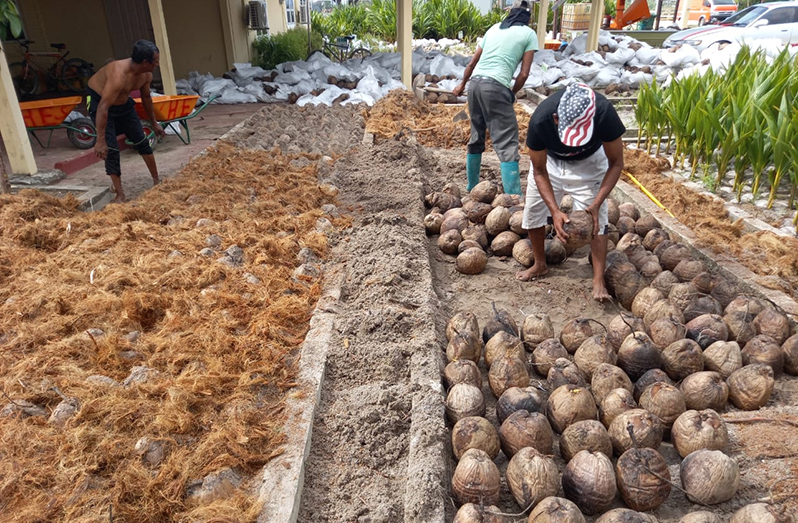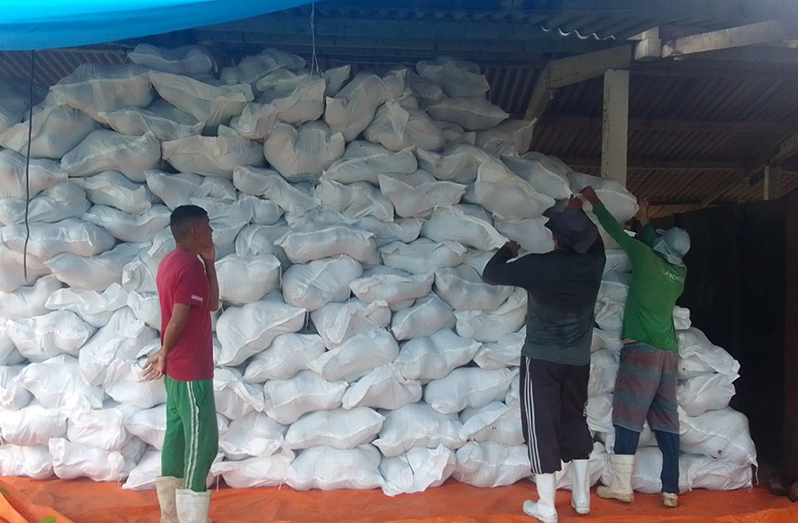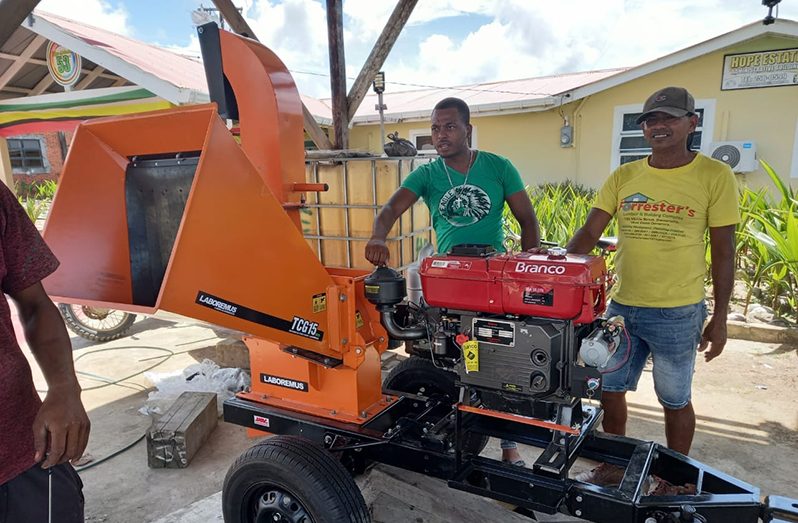COCONUT production is essential to Guyana’s booming agriculture sector, and Hope Coconut Industries Limited (HCIL)’s General Manager Ricky Roopchand has two active programmes to make coconut production viable for all farmers nationwide.
He told the Pepperpot Magazine that the coconut industry has the National Coconut Decentralisation programme, where an adequate number of seedlings are produced at a cost-effective price and are readily available.
Roopchand said that they have 10 coconut nurseries in all regions in Guyana, so a farmer from Lethem and in remote villages will not have to journey to the city or elsewhere to get seedlings anymore.
He reported that a nursery can produce up to 206 seedlings per year, and with 10 nurseries offer sufficient uptake for farmers.

Roopchand stated that since August 2, 2020, 12 coconut nurseries have been constructed and that decentralised the availability of seed nuts from Hope Industries Limited (Hope Estate) to other parts of the country.
In addition, all farmers involved in the coconut industry will be receiving the new Brazilian Green Dwarf Coconut variety, which is intended to boost the local coconut industry further.
The Brazilian Green Dwarf variety is best known for its high-yielding properties and its high tolerance to attacks from common pests and diseases that usually affect other types of coconut.
Its most outstanding characteristic, however, is its ability to produce more water than other varieties commonly grown in Guyana. This variety is also said to produce water with a high sucrose level, making it sweeter than others.
Guyana received some 1,000 seed nuts, and additional seed nuts boosted our local production. Guyana is also leading the way in agriculture as CARICOM aims to lessen the almost $5 billion food-import bill by 25 per cent by the year 2025.

Earlier this year, Roopchand disclosed that the coconut fibre machines will shred the coconut husk and produce two by-products: Coconut fibre and coconut peat.
From the by-products of coconuts, a series of products can be produced after processing to make other things that can be useful in our everyday life.
Additionally, two more machines were sourced from Brazil, and have since arrived in Guyana and are in operation at Hope Coconut Industries, Plantation Hope, East Coast Demerara.
Roopchand disclosed that HCIL has remained financially viable due to government intervention with several programmes to sustain its growth and development by implementing partnership-based projects.
Roopchand added that they have an ongoing sensitisation/awareness campaign with farmers on coconut growth and production.
The HCIL General Manager added that they have an ongoing coconut project to help Barbados with 2000 and Trinidad with 5000 seedlings as part of a Caricom arrangement.
Presently HCIL has four varieties of coconuts: the Jamaican Tall, the Panama Tall, the Malaysian Dwarf, the Brazilian Green Dwarf and the Brown Dwarf (five years, three years and 18 months) suitable for water, oil and soil conditions.

Roopchand reported that for the past five years, when he took control of HCIL, it was in a bad state financially and the place was also run-down, but with the current administration’s input and partnerships, they have managed to maintain a standard of high coconut production and growth.
He added that they work closely with farmers to maintain their role in productivity and he is happy to report that they are functioning at full capacity.
Roopchand pointed out that 13,000 coconuts are being shipped to from Brazil to Guyana to boost our local production.
HCIL has nine staffers, including Roopchand and they work with sister agencies such as the National Agricultural Research Extension Institute (NAREI), the School of Agriculture and others.
Roopchand disclosed that HCIL also produces copra and coconut fibre.




.png)









